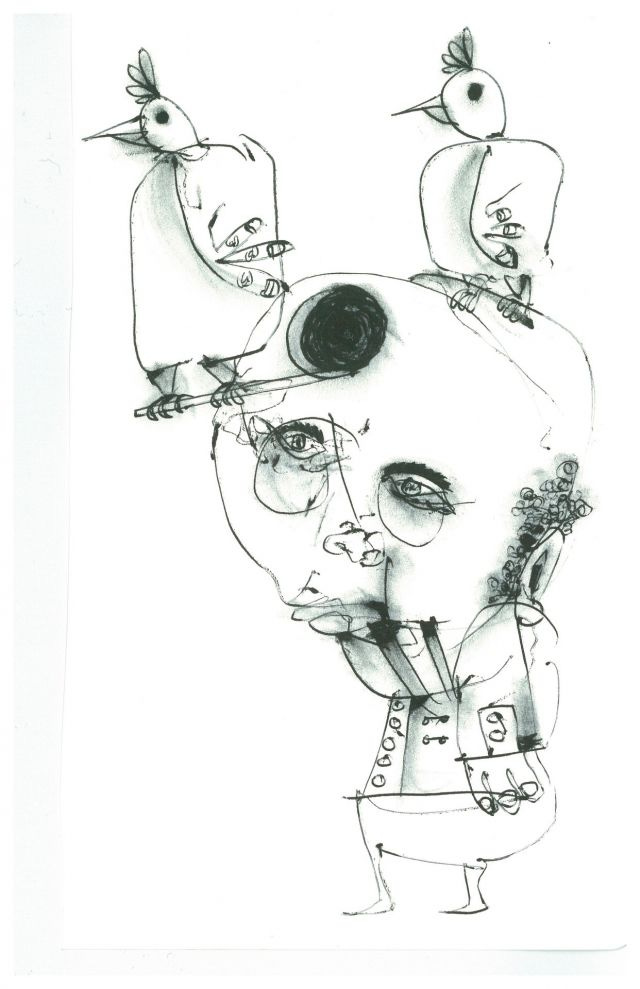Babylon Berlin
Maddd Science

I've got a new TV show rec, although it's been on Netflix since like January, so I'm a little behind the times: Babylon Berlin. It's a historical drama set in 1929 Berlin before the rise of the Nazis.
Pros: It's the most film noir-y genre crossover since Brick, with endless conspiracies and twists, plus a dose of the jazz age. The closest show to compare it to is probably Game of Thrones, just due to the sense of scale, how likely characters are to die, and how the plot twists slowly become more pulpy and unbelievable over time, but in a fun way.
Cons: Not as feminist as it thinks it is. Making the lead woman an aspiring detective is cool, but the amount of agency/character development is what matters, and the show instead sidelines her for both season finales.
Here's an interview with the director that covers a variety of his viewpoints. It's a good read if you've finished the show and are addicted to reading articles about media you like, as I am.
How Babylon Berlin Turned 1920s Germany Into a Wild, Historical-Fiction Fantasy World
Lars Weisbrod, Vulture
Q: Do they sense what’s coming for them, for the country, for Europe?
A: We are very careful to avoid this kind of smart-ass knowledge — that they don’t know what’s happening but that they might “sense” it. We don’t want that. We feel like nobody had a clue. In 1929, no one had a clue that three-and-a-half years later society would turn upside down.
Here's an article that details why it's such a good film noir show without ever actually saying as much:
Babylon Berlin and why our fascination with 1920s Germany reveals the anxieties of our times
Peter Tregear, The Conversation
Another constant of the series is the shadow cast by the first world war and how it damaged both the psyches and bodies of those who survived it. For Detective Rath, relief from his ills is found in illicit drugs. But everyone, it seems, is struggling with demons of one kind or another. One strength of the series is that there are no straightforward “good” or “bad” guys (or girls).
And here's the alternative view on whether it's a great show after all:
German TV Is Sanitizing History
Alan Posener, Foreign Policy
National Socialism, on the other hand, was a popular movement; Germans continued to fight fanatically for the Führer for years after it was obvious that they’d lose the war. Yet the country has still not come to terms with this central fact, and these recent shows perpetuate the self-serving myth that the worst crime their forebears were guilty of was naiveté.
The Trouble with (and Triumphs of) Trends
Elizabeth Bluemle, Publishers Weekly
The occasional death of a genre might be like a forest fire — there are terrible losses and lost chances, some irrevocable. But the clearing also makes space for new life to spring up and bloom. Look at YA; it’s hard to believe it was ever endangered. It’s possible that the burgeoning of YA couldn’t have happened without that steep decline.
Nancy Drew Gets the Intersectional, Queer Makeover We've Been Waiting For
Tracy E. Gilchrist, Advocate
Since the titian-haired girl detective from River Heights cracked her first mystery in The Secret of the Old Clock nearly 90 years ago, there have been dozens of iterations of Nancy Drew and her best friends, Bess and George, featured in books, TV, and films. Now, Dynamite Entertainment offers the latest rendition of the cracker-jack teen sleuth with a comic that fully realizes Nancy’s feminist tendencies, adds several characters who are people of color, and finally, unmistakably queers perpetual “tomboy” George.
Very obsessed with Phoebe Waller-Bridge's show Killing Eve (Related: Check out this cool song from the soundtrack), and with the themes it shares with her Amazon show Fleabag, despite being wildly different.
How ‘Barry’ and ‘Killing Eve’ Make ‘Bad Fans’ of Us All
Alison Herman, The Ringer
Without any internal struggle between Villanelle and her conscience, Killing Eve exports much of its conflict to Eve and the push-pull between the spy and her target. Like many cops-and-criminals sagas, Killing Eve is a story about obsession; more specifically, it’s a story about being obsessed with someone you have no power to change or influence. There’s plenty of room for Eve to become more like Villanelle, which she does.
Next Week on Maddd Science: idk, Infinity War prolly. Unless I find some good Deadpool 2 takes.
My Patreon remains a thing that exists: here
